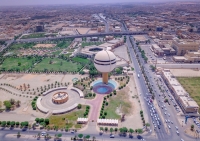
Transportation in Buraydah refers to the available options for commuting and shipping goods and equipment within the transportation system of Buraydah City , the administrative capital of Qassim Province in the Kingdom of Saudi Arabia, under the supervision of the Ministry of Transport and Logistic Services . Transportation system in Buraydah The transportation system in Buraydah comprises two main sectors: Land transportation and air transportation. Land transportation includes two types: Pass...
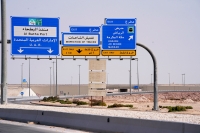
The land border crossing that connects the Kingdom of Saudi Arabia and the United Arab Emirates is al-Batha Border Crossing, located on the eastern border of Saudi Arabia. It is the only crossing linking Saudi Arabia with the United Arab Emirates. It is situated in al-‘Udayd Governorate in the Eastern Province , near the border strip with the United Arab Emirates, which extends approximately 682 km. ...
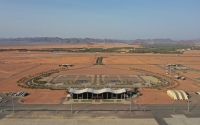
AlUla International Airport is one of the airports in the Kingdom of Saudi Arabia . It was established in 2011 as a domestic airport and was transformed into an international airport in 2021. It is located in AlUla Governorate in the northern part of Al-Madinah Al-Munawwarah Province , west of Saudi Arabia. It serves fifteen administrative centers affiliated with the governorate. It is supported by Prince Mohammed Bin Abdulaziz International Airport in Al-Madinah Al-Munawwarah and Prince Abdulm...
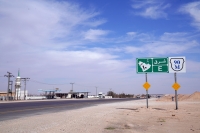
Highway 10 is a major roadway in the Kingdom of Saudi Arabia , stretching from the south to the east. It serves as a key artery in the Saudi land transportation network. Route of Highway 10 Highway 10 begins at its intersection with Coastal Highway 5 and extends eastward, crossing three provinces: Jazan , Aseer , and Riyadh . It passes through several cities and governorates, including ad-Darb Governorate, then heads north through Abha , Khamis Mushayt , Tathleeth , al-Khamasin, as-Sulayyil, al...
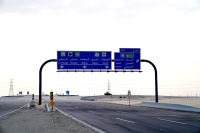
Highway 95 is one of the main highways in the Kingdom of Saudi Arabia and a vital artery in Saudi Arabia's land transportation network, primarily used by residents of the Eastern Province . The main highways are those that begin with one or two digits and connect Saudi provinces and major cities. Route of Highway 95 The route of Highway 95 begins at Saudi Arabia's border with the United Arab Emirates, passing through al-Batha, Salwa, and al-Uqayr. It then continues northwest, passing ...
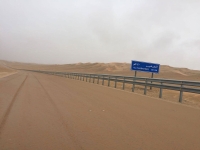
Highway 75 is one of the main highways in the Kingdom of Saudi Arabia and a vital artery in Saudi Arabia's land transportation network, connecting Najran Province to the Eastern Province . Route of Highway 75 The route of Highway 75 begins in al-Kharkhir and heads north to Harad Center, passing through al-'Udayliyyah. It then turns northeast, intersecting with Highway 615, before heading northwest to the northwest of al-Hufuf. The highway continues, crossing Highway 40, passing throug...
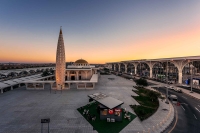
Yes, Saudi airports received the global Airport Carbon Accreditation as they managed to determine the sources of carbon emissions, comply with the required procedures to limit pollution, and launch several green initiatives and programs in line with Saudi Vision 2030 for sustainable development and carbon emissions reduction, which falls under the Saudi Green Initiative , aimed at achieving carbon neutrality (net zero emissions) by 2060. These airports include: - King Khalid International Airpo...
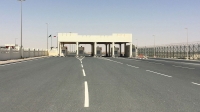
Salwa Border Crossing is a land port on the eastern border of the Kingdom of Saudi Arabia and the only crossing connecting the Kingdom to the State of Qatar. It is located in al-Udayd Governorate in Salwa City, in the Eastern Province , near the border strip with Qatar, which spans approximately eighty-six km. Supervision of Salwa Border Crossing The Salwa Border Crossing is one of fourteen land border crossings managed by the Ministry of Interior , represented by the General Directorate of Bor...
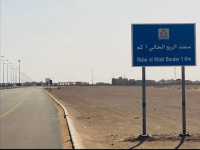
Al-Rub' Al-Khali (Empty Quarter) Border Crossing is a land port on the southeastern border of the Kingdom of Saudi Arabia and the only crossing that connects it with the Sultanate of Oman. It is administratively part of the Eastern Province . Features of Al-Rub' Al-Khali (Empty Quarter) Border Crossing The total area of Al-Rub' Al-Khali ( Empty Quarter ) Border Crossing is 4,428,776 m². It includes a passenger area, a cargo area (for arrivals and departures), an administrative z...
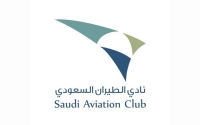
Ar-Rass Airport, also known as the Saudi Aviation Club Airport in ar-Rass Governorate , is one of the Saudi Aviation Club 'SAC' airports in the Kingdom of Saudi Arabia. It is located in ar-Rass Governorate in Qassim Province and is operated and managed by the club. It is the third of the club’s airports in the Kingdom after al-Thumamah Airport in Riyadh City and al-Mandassah Airport in al-Madinah al-Munawwarah . It is the first airport of its kind to control aircraft remotely, and i...
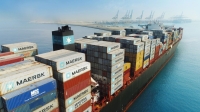
King Abdullah Port is a seaport located on the Red Sea coast in King Abdullah Economic City in Rabigh , about ninety km north of Jeddah City in Makkah al-Mukarramah Province , western the Kingdom of Saudi Arabia. Spanning an area of about 17.4 km², the port overlooks one of the world’s key maritime trade routes connecting East and West and linking three continents, thus meeting the Kingdom’s need for a modern port, both locally and internationally, while contributing to a sustainable econo...
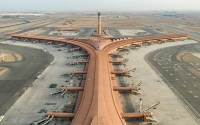
1950 Prince Mohammed Bin Abdulaziz International Airport in al-Madinah al-Munawwarah , developed in 2015 with an annual capacity of 4.8 million passengers, was awarded first place for the best regional airport in the Middle East in 2021. 1971 Prince Naif Bin Abdulaziz International Airport in Buraydah City , Qassim Province , has an annual capacity of seven hundred thousand passengers. 1974 Hail International Airport , in Hail City , became an international airport in 2017, with an annual capac...